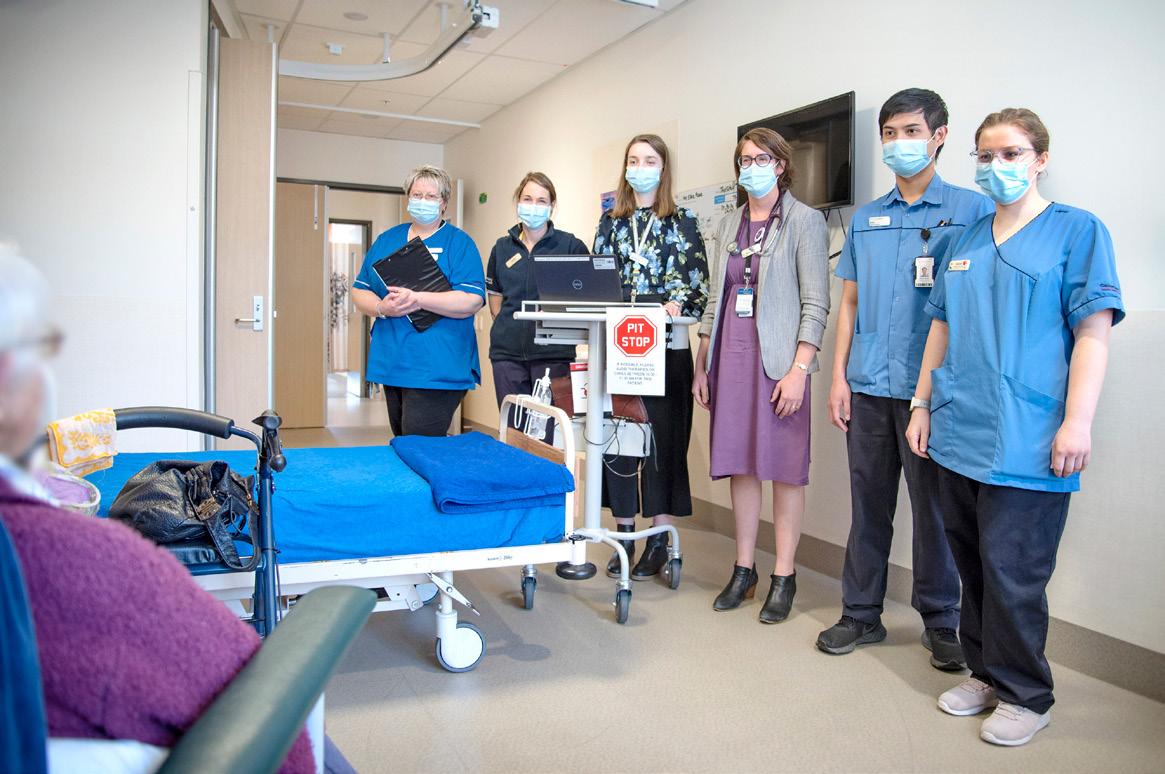
2 minute read
› ‘PIT Stop’ enhances teamwork and communication
A new way of doing ward rounds at Burwood Hospital that ensures patients and their whānau are engaged in care planning is proving a success and being introduced to other wards. PIT Stop (Patient Interdisciplinary Team Stop) was developed by Geriatrician Emma Losco and Ward B2 Charge Nurse Manager Jools Lawson. It involves a weekly ‘stop’ with every inpatient on the ward at the bedside.
“The name PIT Stop came about as we wanted this to be patientcentric, so it had to start with P! We liked the idea of a ‘stop’, rather than a meeting, as to offer this to all 20 patients in our ward every week we have to be mindful of valuing time,” Emma says. “So, like in the motor-racing version this is a team activity where our skills together have a common purpose. Preparedness, communication and trust are key. Like the pit crew, we each have roles, but we also have to work together flexibly, to get the job done. It’s surprising how much can be achieved in a short space of time.” At the PIT Stop, whānau, support people and key members of each patient’s rehabilitation team meet together at a pre-planned time each week at the patient’s bedside. “We discuss the person we are caring for, their health issues and current function. We want to ensure we are ‘all on the same page’, and that our care plan aligns with goals and expectations. It’s about having key decision-makers all in one place, open communication, and making meaningful patient-centred plans that we are committed to as a team.” The PIT Stop forms a central part of teamwork on the ward, and has replaced weekly Interdisciplinary team meetings where patients were discussed without being present. “In healthcare we often find ourselves working in teams, but we don’t always get much training in how to work effectively as a team. We have tried to design a process that is suitable for our patient group and provides the patient with information, advocacy and support. “In Older Persons Health we enjoy problem solving, complex discharge planning and teamwork, and the PIT Stop process supports this skill set,’ she says. “Feedback from staff has been enthusiastic, and we learn a lot from each other, which has promoted a supportive and collaborative culture among the team. Most of our patients are frail older adults, often with cognitive disorders, who due to health events have a functional decline and end up in a hospital bed, often for a prolonged time.”
Advertisement
From left, Charge Nurse Manager Jools Lawson, Physiotherapist Hayley Johnson, House Officer Laura Kevern, Geriatrician Emma Losco, and Registered Nurses Robin Buan and Sarah Oquist



